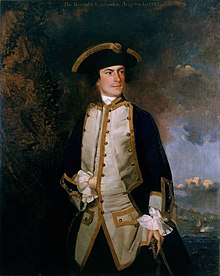“The Only Method to secure peace in the Town”?
Bourmaster wrote:
The number of the Country People who fired on our Troops might be about 5 Thousand ranged along from Concord to Charlstown but not less than 20 Thousand were that day under Arms and on the March to join the Others. their loss we find to be nearly on a footing with our ownThis count of militiamen who had turned out was reasonably accurate. However, the Crown had lost about three times as many men killed, wounded, or missing as the provincials.
three Days have now pass’d without communication with the Country; three more will reduce this Town to a most unpleasent situation; for there dependence for provision was from day to day on supply from the Country that ceasing you may conceive the consequences.John Collins and Bourmaster had both been lieutenants on HMS Valiant years earlier. Collins had become commander of HMS Nautilus, which arrived in Boston harbor in early April.
preparations are now making on both sides the Neck for attacking and defending the Hampshire and Connecticut Militia have join’d so that Rebel Army are now numerous. Collins is well and stationed between Charls Town and the end of this Town to assist in the defence. The General [Thomas Gage] and Earl Percy shall have the perusal of your Letter.
Under the date of 20 April, Adm. Samuel Graves wrote in his Narrative:
The Captain of the Nautilus off the Magazine point, was directed to arm a flat bottomed Boat, and with the assistance of Boats from other Ships to take care that Guard should be rowed every night as high up the [Charles] River as possible.In his later letter, Bourmaster discussed Gage’s quandary of how to deal with Boston’s civilian population. Was it safer to let them leave or to keep them in town to forestall a provincial attack, knowing most were hostile to the occupying army and had militia training?
Propositions have been made on the part of the General to the Select Men for disarming the Inhabitants but this I find they are unwilling to comply with; so that if we begin at the Lines we shall have it on both sides of our Ears they being at least 3000 strong in Town, with Arms in their possession; a pretty pass we are come to, Ah poor Old England how my heart feels for her present dishonourable situation—Ultimately Gage and the selectmen reached a deal: once Bostonians had stored their firearms in Faneuil Hall, they could leave. Later Gage curtailed the departures, prompting complaints. Later still, Gen. George Washington grew suspicious of people leaving the town, worrying they were meant to spread smallpox or collect information.
Bourmaster shared his own idea for how to deal with this set of zealous civilians:
The following I have proposed as the Only Method to secure peace in the Town there are Churches and meetings sufficient to contain all those before mentiond, they with the Select Men, and Preachers, should be put in their at daylight in the Morning, their doors well secured, a strong guard round each, with Bagonets fixt; and then would I begine the Attack on Roxbury and Open a way again for us besieged Britons, but this is only a little presumption in an Old Valiant who becaus he has seen great things don expects to see such days again.That plan was never implemented, of course.
Again, the surviving text of Bourmaster’s letters, as copied for the Marquess of Rockingham, was published in the William & Mary Quarterly in 1953.





